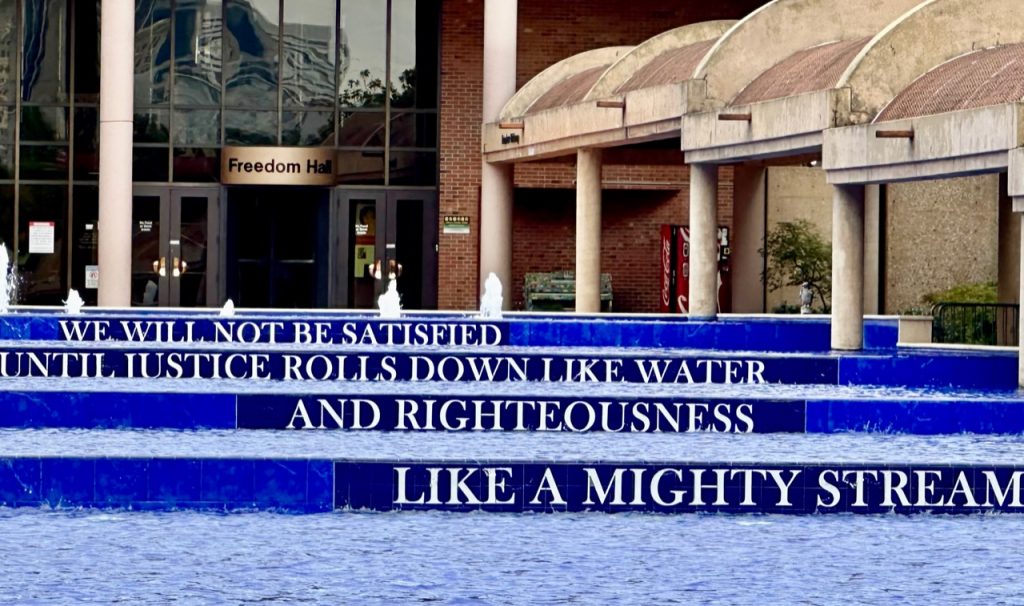
A challenge arises whenever something completely baseless and easily refutable gets offered up as shocking truth. Should I attempt to explain it or just ignore it?
Increasingly, the first option — to respond — seems unproductive. Yet the latter can feel like negligence.
It helps to determine the motivation behind the misinformation. Reviewing earlier postings and responses can be beneficial.
For many, the pursuit of truth is not the goal. Rather it is the faulty but comforting reinforcement of preferred conclusions.
A reminder, however: Jesus said only one of those can set you free.
Henry Madison explained why proving something to someone is unlikely change their mind.
“We still have the idea that societies operate using information,” he wrote on X. “They absolutely don’t; they operate using status and conformity….”
This reality reinforces the argument against raising even good arguments — since discovering and embracing accurate information is not often the goal of those dispensing socially-shaped, fear-driven inaccuracies.
Most disappointing is how much of the advancement of clear misinformation is practiced by professing Christians. Often, even in the name of Jesus.
The resulting tragedy is that the biggest threat to truth, justice, equality and human decency in our nation at this moment is fueled primarily by white Americanized Christians who so easily and deeply embrace fear-based, defensive delusion.
Since these regurgitated social media postings tend to be less about seeking answers than agreements, the challenge remains: to respond or not?
Additional questions can help: Will anything constructive come from responding?
Would some accurate information be welcomed — or is this yet another attempt to “prove” one’s preferred position even if false?
Often such misinformation is an advancement of Christian Nationalism — a bastardized concoction of bad politics and worse religion. Race is never far below the surface, if at all.
Immigrants of color have become the primary targets of blame and hatred — earlier occupied by Muslims, African Americans and others considered a threat to white cultural dominance.
The abundant regurgitation of religious misguidances— often tied to preserving social privilege — is now at peak performance
Discernment may well be the primary missing attribute of Americanized Christianity. Without it, not only falsities get presented as truth but justification for advancing evil is so easily employed.
With friends visiting Atlanta last week, I gladly offered a tour of the city’s rich civil rights sites. I am reminded of some words by Martin Luther King Jr., in his sermon, “A Tough Mind and a Tender Heart.”
“Rarely do we find [people] who willingly engage in hard, solid thinking,” he proclaimed. “There is an almost universal quest for easy answers and half-based solutions. Nothing pains some people more than having to think.”
I would add, nothing taught by parents and teachers is more ignored in the decades that have followed than, “Do your homework.” Which doesn’t mean finding someone who says what you want to hear — and then passing it along as truth.
Often the repeated misinformation and wild conspiracies are specifically designed to sow discord and hatred. As revealed recently, these efforts come from those wishing harm over harmony.
The intended repetition creates racially-based fears that induce cruelty — which one should see as absolutely contrary to what Jesus called his followers to be and do.
Yet the question remains: How do I respond if at all?
Much nonsense comes in such large volume that it’s impossible to counter. And the uselessness of explanations eliminates other needed responses.
A more-likely response comes not with any hope of changing the person’s misguided mind — but speaking up for those abused by such false claims.
In those cases, the challenge serves a larger purpose on behalf of those who are targeted and may feel unable to come to their own defense. Perhaps they are reading the post and wondering if anyone claiming to be Christian cares about them.
And while Jesus doesn’t need our defense, I have a hard time giving him over to misrepresentations of who he is and what he came to do.
Therefore, some responses come out of the basic conviction that those who claim to be so chummy with Jesus, ought to somehow reflect how he told his followers to live.
There is a need for great caution, however, on all our parts. None of us has all the truth to be dispensed.
We must continually check our own blind spots and misunderstandings, as well as selfish motivations. And ensure that we don’t let our disappointment turn to anger in which we swap our destructive outrage for someone else’s.
Assuming the position as arbiter of all truth is not our role.
At the least, however, we all can choose the pursuit of truth over untruth — using wisdom and available resources to test presented conclusions. Even while confessing that we will make honest mistakes.
Yet the daily discernment continues: Do I speak up or shut up?
And the best test question seems to be: What will it accomplish?
John D. Pierce is director of the Jesus Worldview Initiative (jesusworldview.org), part of Belmont University’s Rev. Charlie Curb Center for Faith Leadership.
